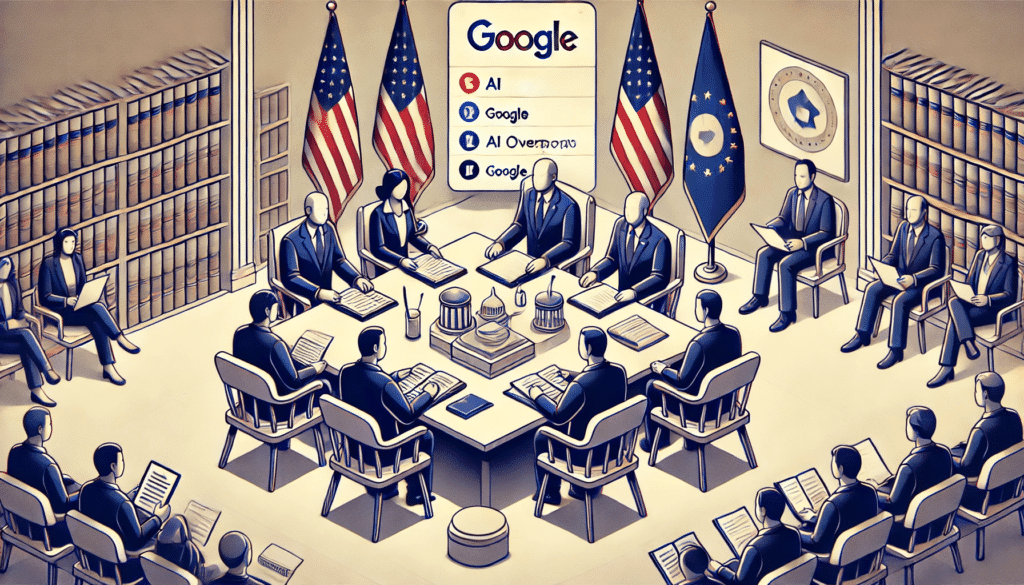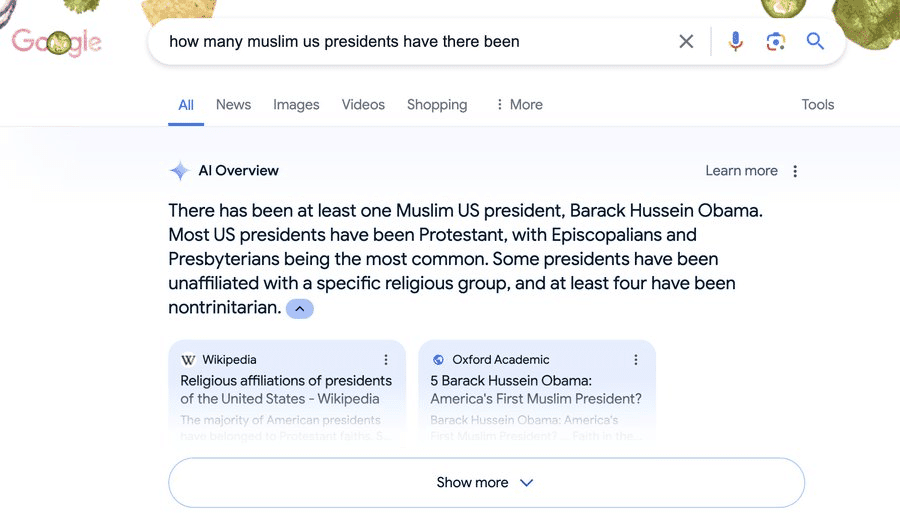Table of Contents


Want to Boost Rankings?
Get a proposal along with expert advice and insights on the right SEO strategy to grow your business!
Get StartedRepresentative Adam Schiff (D-Calif.) and several other lawmakers are pressing Google CEO Sundar Pichai for answers regarding the company’s new AI Overviews feature.
This tool, which generates quick summaries of information for users, has been criticized for providing misleading and false information.
Free SEO Audit: Uncover Hidden SEO Opportunities Before Your Competitors Do
Gain early access to a tailored SEO audit that reveals untapped SEO opportunities and gaps in your website.

The lawmakers are concerned about the reliability of Google’s search engine, which is a primary news source for many Americans.
Misleading AI Summaries Stir Controversy 
The AI Overviews feature is designed to present a synthesized snapshot of information on queried topics, accompanied by relevant web links. However, several reports have highlighted that the feature often pulls data from untrustworthy sources, including satirical sites and debunked conspiracy theories.
In one glaring example, when users searched “how many rocks should I eat,” the AI Overview suggested eating at least one rock daily for vitamins and minerals, referencing a satirical site.
Another instance falsely claimed that the United States has had one Muslim president, Barack Hussein Obama, a piece of misinformation stemming from long-debunked conspiracy theories.
Lawmakers Demand Transparency from Google
In a letter dated July 17, 2024, Schiff, along with Representatives Henry C. “Hank” Johnson Jr. (D-Ga.), Donald S. Beyer Jr. (D-Va.), Lori Trahan (D-Mass.), and Pramila Jayapal (D-Wash.), have urged Google to enhance the reliability of its AI Overviews.
The lawmakers have asked Pichai eleven specific questions, demanding detailed explanations on how the AI feature determines the relevance and accuracy of the information it provides and what measures are in place to prevent misinformation. They have requested responses by August 1, 2024.
The letter shows the role of Google in providing accurate information, particularly as 65% of U.S. adults rely on Google’s search engine for news. Given the pervasive threat of online misinformation, the representatives are pressing Google to prioritize reputable sources and improve its content policies.
AI’s Track Record and Accuracy
This scrutiny of Google’s AI Overviews feature isn’t an isolated incident. It comes on the heels of increasing concerns about AI’s role in spreading misinformation.
Last year, Schiff supported the Federal Election Commission’s (FEC) decision to advance Public Citizen’s petition for rules addressing the use of AI in deceptive campaign advertisements.
Additionally, in April, Schiff introduced the Generative AI Copyright Disclosure Act, which aims to ensure transparency in AI models trained on copyrighted works.
The repercussions of misleading AI-generated information are significant. Incorrect health information can lead to harmful behaviors, while political misinformation can distort public perception and influence election outcomes.
Given the reliance on AI for quick answers, it is imperative that these systems are accurate and reliable.
Future of AI: Stricter Regulations Ahead?
The controversy surrounding Google’s AI Overviews emphasizes the broader challenge of ensuring the trustworthiness of AI systems.
If unaddressed, the spread of misinformation through AI tools could undermine public trust in digital platforms and exacerbate the spread of false information.
Google’s response to these concerns will be pivotal in setting a precedent for how tech companies handle the ethical responsibilities of AI deployment.
In the future, we can expect increased regulatory scrutiny on AI systems. Legislators will likely push for more stringent guidelines to ensure transparency and accountability in AI-generated content.
Companies might also need to invest more in fact-checking mechanisms and collaborate closely with governmental bodies to maintain the integrity of the information they provide.
How to Protect Yourself from AI Misinformation?
For users, this situation serves as a reminder to critically evaluate the information sources provided by AI tools. Here are a few practical tips:
- Cross-check AI-generated information with reputable sources.
- Be wary of sensational or improbable claims and verify them through trusted websites.
- Report any misleading or false information encountered in AI-generated summaries.
- Stay informed about the latest updates and improvements in AI tools from trusted news outlets.
Key Takeaways
- Google’s AI Overviews feature is under fire for disseminating misleading information.
- Representative Adam Schiff and other lawmakers have demanded detailed responses from Google on how it ensures the accuracy of its AI-generated content.
- This issue is part of a larger conversation about the ethical responsibilities of AI and the need for reliable information.
About the author
Share this article
Find out WHAT stops Google from ranking your website
We’ll have our SEO specialists analyze your website—and tell you what could be slowing down your organic growth.















